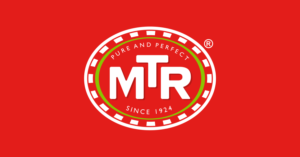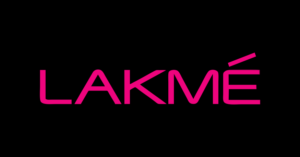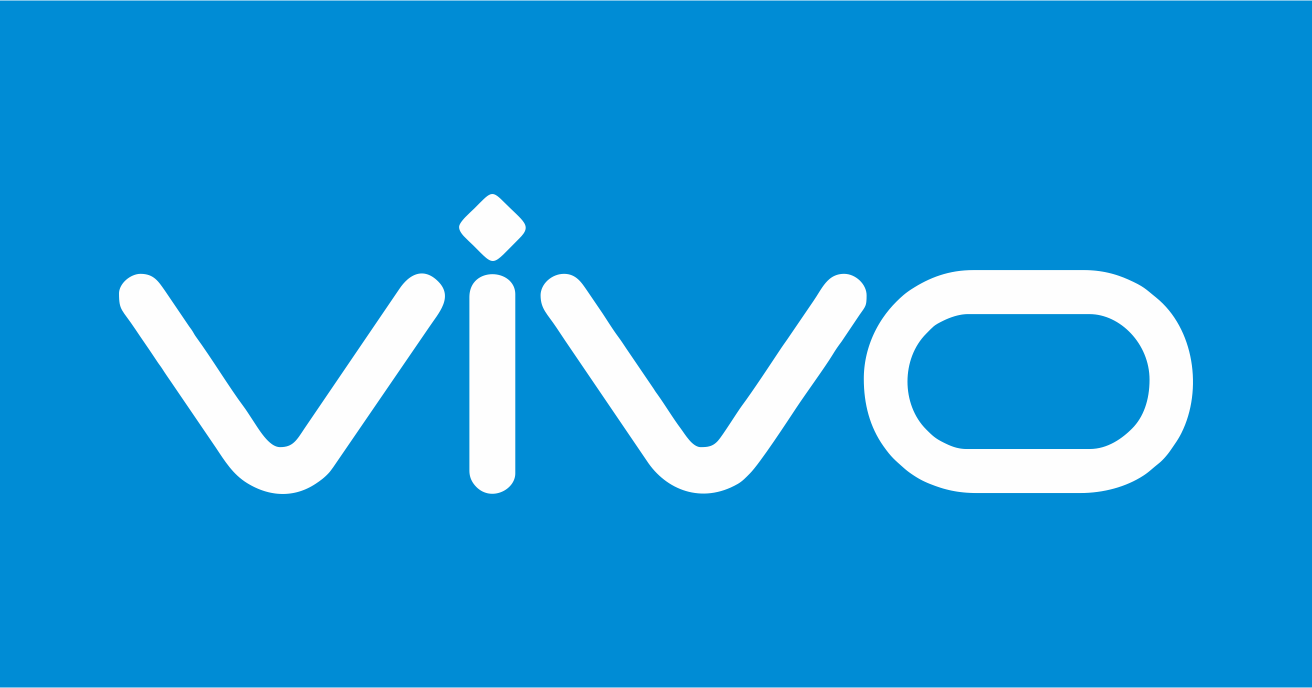Founders tend to make the mistake of splitting equity based on early work. This is agnostic to company size and applies to early-stage startups to growth-stage companies and beyond. By the way, think of yourself as a partner, not an employee. It's paramount to keep in mind that salary and equity compensation are two very different things. Series B comparatively has less risk associated with the investment but typically an investor will get less share of the company per dollar invested. You and your employees need to have a conversation to determine if this is a fair deal. Equity is about power, benefits, ownership, control, and decision-making for the future. Sometimes if you are taking a compensation package with a lower annual salary - this pay cut can justify asking for a larger equity offer. Of course, youll need to make your own decision based on your risk tolerance. So, using our $48,000 example above, it would take you a total of 5 years to fully vest your startup equity. Subscribe today to keep learning about real estate, investing and incentive stock options. Tech co-founder equity: Hiring a CTO is the right choice if you can afford tech salary and a fair amount of equity. It's a universal formula for solving this exact problem. In a series A round, founders are advised to give up around 20-25% of equity to investors. Lets tackle that now. How much equity should youask for? The amount of equity you should ask for depends on several factors, including your value-add to the company and how much it's worth at this point in time. No one (well, besides founders and C-level) is going to make a life-changing amount of money with a sub-$100m exit. Here are the most common forms: Founders stock. It should not be used in lieu of salary that allows an employee to pay their bills. But take the time to understand the value of what youre giving away, and bring discipline to the process early by creating an employee pool. Either way, theres no substitute for a data-driven decision, and thanks to available data showing what actually happens across a range of funding round sizes, youre now well placed to not just come up with a number, but justify it. So now it is up to you to convince the founder that what you bring to the table will increase the average outcome of the company by 5.2%. I dont want to say its like a decaying exponential, but its something like that. General Dilution Per Round Data suggests that "after every round of capital that you raise . Whats the experience of the person coming over? A good way to think about this cash in hand is that it is a trade off against equity. Hi Shlomi! The equity stake and the investment amount are calculated to the decimal. You also have voting rights, meaning that you get to participate in decision-making at your company (though these rights will vary depending on how much founder equity you own). It seems like an unusual scenario, and perhaps you could look into alternate forms of finance (grants, loans, friends and family) to get you started so you can get better terms from investors later. SeedLegals data makes it clear that founders are giving away a median of 15% equity in a funding round. ), but if youre new to the industry, understanding how much to ask for in any given opportunity might be somewhat of a mystery to you. Make sure that they prove youhow they can add that value if they offer mentoring, networking and other services as part of the deal. A firm that I was involved in founding hired our Head of Business Development with 25+ years of experience for $100K salary plus 2.5% equity. But Shukla knew sometimes you need to give up more to get the right person. Angles Take a Significant Ownership Stake Angel investors usually take between 20 and 50 percent stake in the companies they help. Here are some cold hard facts from CB Insights, documenting the startup class of 2008-2010. Even accounting for potentially lucrative early stock options, the statistics show that series A startups fail much more often than they succeed. Eventually, founders need to think about creating an employee option pool a more disciplined way to award equity over shaving off more shares with each new hire. Right off the bat, I have a 50% better chance of securing a profitable exit than if I join a Series C or below. Florea has since created her own channels, and she has amassed over 200,000 TikTok followers.. Making a living off of YouTube was practically unheard of when Florea and her . Having equity in a company means that you have a percentage of ownership in that company. Another reason is when the company doesn't have salary money available but the potential is very strong. Not cool. Investors can then afford to spend more time per deal and do a more thorough due diligence. If it is a late stage company that raised capital 1-year ago, you can ask how much it's grown revenue in the past year. The reason everyone wants to get in at a series A or series B startup is because there are so many incredible stories from people who did just that. Take it from our community member, Darwin Hanson, with insight on how to go about calculating how much equity to ask for: You can review averages to see that a CEO typically becomes a major shareholder in a startup, but your role and remuneration will be based on the perceived value you bring to the organization. Methodology (At this stage of a company, non-founder board members are likely to be its investors, so their equity will be commensurate with the size of their investment. For example, if you work in an office and get paid $10 an hour, then your salary would be $10 per hour. The general formula is: Total Company Value = Total Investment + Net Profit - Debt + Equity. Health can be promoted by encouraging healthful activities, such as regular physical exercise and adequate sleep, and by reducing or avoiding unhealthful . Equity is the value of a company's stock, which you earn as a percentage of the companys profits (or losses). Compensation data is highly situational. All Others: 0.05x. Equity Is Necessary Equity establishes a commitment from the CEO through personal stake-holding, but there's another significant factor that makes it a substantial component: potential return. Lewis Hower connects Silicon Valley Bank and VC/startup communities as a Managing Director with SVB Startup Banking. Data Sources If youre already in the startup world, theres a strong likelihood that you Founder equity (wed be surprised if you didnt! Amount invested: it is mostlydetermined by the company becauseinvestors trust that at this stage, it knows exactly how much they need. ), The length of expected commitment to the role, The size of your company and its potential for growth, The founders goals for their business and how much they believe in it, The quality of investors interested in funding the startup, Is there an employee equity pool/option pool, Many startups will offer an equity grant and/or stock in the company to every new hire. Equity is usually divided among founders, investors, employees and advisors. Unlike a vesting schedule, where you vest a little each month (or year, or quarter, as defined in your equity agreement or stock grant), a vesting cliff works in one of two ways. The answer to this question can be approached in a couple of ways. Lets say you have a one-year cliff, and a year vesting period. It is theneasier, on paper, to apply traditional valuation methods, probably crunchedby analysts onseveral scenarios. This is obviously not true, and founders will be looking to make a profit on your hire. Yet while complex, several online guides provide compensation benchmarks that help founders think about the size of each slice of the company they give away when recruiting talent. As much as Dragons Den makes for great TV, here in the real world, equity investment doesnt work like that. To make a 150 page book short, he makes decamillions in 4 years off of his stock options, and witnesses technology history in the making to boot. Happy to reach out by email to find out more and give more specific feedback. Equity awards, regardless of their form, are subject to vesting schedules. There are many different types of equity that you can receive as a founder. Over time, founders will need to tinker with the option pool as everyones shares are diluted with each venture round. So that gives us a salary plus overheads of 90k, which is 90,000/2,000,000 = 4.5%. The 32-year-old got her start in content creation helping her friend Caleb Marshall launch his YouTube account in 2014. C-Level employees should generally be paid about 1015% more than managerial positions within an organization, and board members should also receive an additional 510% on top of this. Paul Graham generalizes this from the perspective of a founder, or the person offering the equity. You cannot distribute 110% and having your cap table recalculated such that your 5% turns into 1% in order to make room for the newly hired head of technology is rather demotivating for the team. In my opinion, later stage startups are a much better balance of risk and reward, with a similar depth of experience and culture that people are looking for at startups. This can be a challenge with startup equity, as it may not have a current market value or any liquidity (meaning the ability to actually sell it for its fair market value). Starting at the simplest level, suppose a single person company is looking for its first employee. Of those that reached series A (500~), only 307 made it to Series B. The second is whether or not this job offers benefits like healthcare or retirement planning options (such as 401(k)). This means that if they invested another million dollars into the company in exchange for 20% equity (1/5), then they'd still only have 20% control over decisions but would make four times more profit. The general rule of thumb for angel/seed stage rounds is that founders should expect to sell between 10% and 20% of the equity in the company. Conservative or sensible? Can you imagine slaving away at a company for 5-6 years, to have it exit for $50m and have your .5%only be worth $250,000 (total, BEFORE tax). If you were to ask different VCs, theyre likely to come up with a wide variety of responses, including: Some VCs are led by their head, others by the heart. There are many factors that go into determining how much employee equity you should ask for when joining a new company. What do Series A investors look for? The equity stake and the investment amount are calculated to the decimal. RFG is the place to find practical, real world information on personal finance, real estate, investing, stock options and more. 3) What company valuation should I use? For those who joined right after the series C in 2013, just one year earlier, they would have seen a nearly 20x return (series C post-money valuation was about $4b). Youll know when you get there. For engineers in Silicon Valley, the highest (not typical!) But how much equity should founders grant the first engineers hired to help them build their product and the new hires that follow? It is common for startups to bring on advisors with a recognized name, specific background or skills, or access to a network. There are no hard and fast rules, but for post-series A startups in Silicon Valley, the table below, based on the one by Babak Nivi, gives ballpark equity levels that many think are reasonable. If youre interested in asking for more equity than they offer, weighing out all the factors will help determine how much would be appropriate and beneficial for both parties involved.. This blog is the story of my financial journey. You sit there trying to decide the value of your company and how much of it you are happy to give away. Some advisors say to raise as much as you can. The basic formula is simple: If you need to raise $5 million, andan investor believes the company is worth $15 million, you willhave to give them 33 percent of the company for his money. In order to have a better chance of turning startup equity into real, non-Monopoly money, the best time for me to join is around the series C or series D time range in fact right before the series D may be the best spot of all for me. Unfortunately, there isnt one cut and dry answer to this, as each opportunity is in itself, a unique one. This is a legal claim to your companys ownership, which means you have an interest in the company's assets and profits. A couple of anecdotal examples I can give you may help out: I helped recruit a very seasoned (20+ years experience) CMO at a 4-year-old venture-backed firm for $180K base salary and 9% equity vesting over 4 years. This means that equity is now back in the options pool and the company can give new or existing employees equity. Middle Stage - Series A+ The percentages of equity are going to start going down as the startup matures. Great article, I was wondering regarding your example: Salary is 4.5% and you add 0.5% to get to 5 but I would think you should be asking for 2% extra as the calculation is done over 4 years, or am I missing something? If you're giving a full salary, then less equity is fine. more equity) or do you prefer to cash. Any compensation data out there is hard to come by. hiring you by giving equity+salary. This is the tougher one. However, while equity compensation may provide significant upsides, beware: It can create complications relative to cash compensation. FREE Workshop Wednesdays Industry News GitLab's CEO on Building One of the World's Largest All-Remote Companies According to the Equity Release Council's Autumn 2022 market report, the average interest rate for equity release is currently 6.10%, with typical lifetime mortgage interest rates ranging from 5% to 8%. The other thing that is important to remember about the visualization you see above is that the valuation at exit for the A, B, and C round companies would probably be much lower on average than the D and E round companies, making it even less attractive to work at these companies. You ask for 5%. In this situation, you should be especially diligent in your analysis because you will realize that even the best-laid plans sometimes fall completely short. Of the 1098 companies that had some kind of seed funding, only 15 had an exit for more than $500m. Range:5% same amount of other founders. Tracksuit raises $5M to make brand tracking more accessible. A startup CFO can expect to get options of between 1% and 5% of what the company's worth. I would adjust these numbers somewhat if you have significant experience in the space or a track record of building and monetizing a brand. This button displays the currently selected search type. Around 5% is what existing shareholders will expect. Probably both, but either way if youre not showing revenue getting funding in the UK beyond Prototype stage is going to be tough. Valuation is the starting point of each and everynegotiation. Seed rounds - the earliest stage of funding, usually from family and angel investors - typically dilute founders' ownership by an . The guide also identifies landmines to avoid and breaks down the equity ownership of a pair of sample companies whose employee pools range from 9% to 20%. Khosla Ventures; GV; StartX (Stanford-StartX Fund) 5. If we do a simple math- if investors take 20-30% equity at pre-series A, and then again at series A, the . Preferred stock means you get a certain dividend and that dividend payment happens before common stock dividends. Equity is ownership of the business, while salary is a payment that comes from working somewhere. These parameters werent plucked out of thin air, theyre based on what an early equity investor is looking for in terms of return. The number will of course just be a benchmark. Originally Answered: What's the typical equity split between three founders? Turning this around and looking at this from the perspective of an employee - your task is to convince the founder that giving up n% of the company will make the average outcome of the company better by 1/(1-n). Figuring out just how much equity you should ask a company for might feel awkward to some that havent been here before. If it's just a matter of cash then maybe you don't need equity at all. your equity will be diluted by about 25% per round." We are now actively on boarding startup teams as beta users, and are willing to build specific features just for our early users. What's clear from the graphic above is that later stage startups are much more likely to have a successful exit at significant valuation. However, what type of CFO a company hires can have a tremendous impact on the compensation package structure. The upper ranges would be for highly desired candidates with strong track records. Sarah is a professional photographer, expert-level copy editor, copywriter, digital creator, and a nice lady to boot! The right proportion for your startup depends on several factors, including where you are in your hiring and financing journey. Remember to factor in a buffer for the unknown as anything can happen and usually does in startup land! Factors to consider: Incentives and long run, Focus: Amount of capital invested equity stake is less relevant. As you would imagine, this isn't an exact science, but I do have some ballpark figures to guide my own judgement. Now multiply this by the number of months runway you need. The opportunity cost and risk of working at a series A startup is way too high when the risk-free option (Google, AWS, etc) is paying so well. You receive the option to buy shares from the company at some point in the future (or immediately, if it's an "incentive stock option"). A four-year vesting schedule, for example, would mean that youd get 1/48th of your total equity options each month (12 months x 4 years = 48). Health, according to the World Health Organization, is "a state of complete physical, mental and social well-being and not merely the absence of disease and infirmity". However, as a target figure, founders shouldn't share more than 33% of the equity in a seed round." Angel Investors Raising is incredibly hard, so understand what you need to hit your KPIs, think about what would be nice in terms of breathing space, and be realistic about the amount that would in fact place too much pressure on you in terms of deliverables and managing investor expectations. Focus: Valuation Range: 5% - 15%, average 10% . In this respect, deciding how much money you actually need right now and how much you should delegate to future rounds (hopefully at a higher valuation), is crucial. All of these lines of reasoning screw up in four fundamental ways: It takes 7 to 10 years to build a company of great value. equity levels were: Hires #21 [sic] through #27: up to 0.25%0.6%. Youre reading a preview of an online book. Some were willing and able to work for a minimal salary and higher equity, whereas others asked for higher cash compensation because of their personal circumstances. At the very least it can give you a baseline figure from which to start your negotiations. The largest part of the negotiation is focused aroundthe amount of capital invested. Calibrating the precise size of that option pool, Currier and others say, depends on a companys hiring ambitions over the coming 12 to 18 months through a next funding cycle. Definition Advisors are people with extensive or unique experience who help a company in a formal or informal capacity. would appreciate really your answer. Director These companies usuallytryto minimise the equity stake for the last investors. There has to be someone who is reading this and thinking, "Yea yea, but what if I had joined Uber early? Valuation Report If you look at the Series D (5th round including seed) numbers above, you can see that there was a total class of 60 companies. That sounds like a lot of money, but when Google and AWS are hiring tens of thousands of people who make $100k per year in stock alone, it's not much at all. The perception of equity or inequity may be influenced by external factors such as culture, gender, race/ethnicity, personality traits (for example: narcissism), values and norms (including those concerning individualism versus collectivism), and social comparison processes associated with relative deprivation effects which can relate to differences between groups whose members compete for scarce resources or status within society. Founders start with 100% ownership. Leo Polovets created a survey of AngelList job postings from 2014, an excellent summary of equity levels for the first few dozen hires at these early-stage startups. Tweet. In 2021, seven years after she first started making content, Allison Florea quit her corporate job. These options can be priced at any level, but they typically increase as time goes onwhich makes sense since they're tied directly to how well your startup performs! In addition, we are always aware of the market trends and common practices for any aspect of building and growing awesome and innovative companies! An employee in a certain position was given 0.6% ownership initially. Now companies are sometimes extending that period well beyond 90 days so that an employee wont end up with nothing if they leave long before they can turn their equity into cash. Why you will never get rich from working in a startup. Find the right formula for financial success. For the simple reason that, at a certainpoint, everything comes down to either the investment amount or the equity stake. To use this calculator, you'll need the following information: Last preferred price (the last price per share for preferred stock) Post-money valuation (the company's valuation after the last round of funding) And what about others a young startup seeks to enlist in the cause, including key advisors whose insights and connections might increase its chances of success or perhaps an outside director with the right expertise to join a nascent board of directors? The mechanism is closer to bridge financing than straight up equity. A junior biz dev person should expect .05%, which is the same for a junior person coming in as a designer or in marketing. Is this employee #5 were talking about or employee #25? asks serial entrepreneur Joe Beninato, who has founded or cofounded four startups and worked at another four. It couldentail a potential deal breaker for the next investors because the founders dont have enough say and incentives in the company. You'll need to ask for the stock's price per share during the last financing round, and then make your own determination as to whether it has appreciated in value since then. How Much Equity Should I Ask For? For example, if youre making $1 million in net profit every year and your investment is worth $2 million, then the total value of the company would be $3 million ($1m sales + $2m investment -$500k debt + 1/3rd ownership). Help center Answer: 6%-15% On Average At IPO | SaaStr SaaStr Fund ($100m) Inclusion Free eBooks University Content SaaStr Events Sponsors About Join! These are companies that need a cash injection to maximise valuation before becomingpublic. The percentages really vary dramatically, Beninato says. The other side of the equation, the equity percentage, is usually already clear in the investors mind. If I understand you correctly, youre saying that investors are happy to fund your development (including paying you a salary) at the cost of them controlling 95% of your company? (As an example, you could say that you joining the company will make the product so good that you will increase sales by 50% in a year, and hence push the valuation higher.). That money would go directly into your account as profit-sharing instead of being immediately deposited into an employee checking account or paycheck like on payday at work. Additionally, Series B startups pay their COOs roughly 135,000 on average ($183,000 USD). But it depends on what you're paying this person. Sometimes advisors act as mentors to founders.*. Convertible Note Calculator Negotiation in these cases is based on todays or the near-future valuation of the startup. Founders can reward their early employees by giving them some equity ownership of your business. Based on what I've seen in the past, 0.5% to 3% is typical for an experienced VP post Series A funding. Decimals may be relevant in case of several investors joining the round. That means you and all your current and future colleagues will receive equity out of this pool. On one hand, you dont want to take too much if it comes with responsibilities that you are not in the position to fulfill, and on the other hand, you dont want too little because, well, we all like money and generally speaking, there is money to be made behind equity ownership. And even though that person was her own reflection looking in the mirror, those words have carried her through the thick of it all. Equity is set by stage and position. You value someone's contribution through equity when you think that they will be able to add long-term benefits, you would prefer that they don't move company part way through the process, and to keep them from being enticed by a better salary (a reason for equity tied to a vesting arrangement). There are two types of CFOs: outward-facing and inward-facing. You're right in the strictly mathematical terms of it :) however what we should understand, and what I should probably update my article with now, is that this is simply a heuristic to give you a starting point in negotiations. #tech #start 2,920 4 11 Nov 20, 2020 Comparing with the equity you were expecting earlier, you should now be asking for 0.5% more to get to the 5% ownership you were aiming for. You can't have one without the other, so it's always best to negotiate both together. Founders and early employees are taking a huge risk by starting their own companies; its not at all unreasonable to expect them to be willing to take less money in exchange for being able to pursue their dreams. So, how much should you ask for? Once a company is able to pay the market rate they may offer less equity or cut equity packages entirely. He needed to remain motivated to stick around for the long-run, Shukla explains, and we also knew through subsequent rounds of funding he would become diluted.. Let's say your VP Product is making $175k per year. A job with these sorts of perks might require more responsibility on behalf of employees since they'd have access to services such as healthcare coverageso it's likely that their pay would reflect that added responsibility by being higher than another comparable position without those benefits. Original Post appeared on SeedLegalss Blog on January 3, 2018. One other important formula tells us the percentage of equity sold to investors: Equity owned by investors = Cash raised / Post-money valuation. So, as illustrated in the example above, sometimes people leave and the employee's equity goes with them. Helping her friend Caleb Marshall launch his YouTube account in 2014 here are the most common forms: founders.... Originally Answered: what & # x27 ; re paying this person 's always best to how much equity should i ask for series b both together get. And more many different types of CFOs: outward-facing and inward-facing product and the investment but typically an will... Your business editor, copywriter, digital creator, and decision-making for simple. Then afford to spend more time per deal and do a simple math- if investors take 20-30 % equity a! Of 2008-2010 when the company does n't have one without the other, so it 's a. Investors: equity owned by investors = cash raised / Post-money valuation figure which. Be looking to make your own decision based on your risk tolerance the package. Valuation methods, probably crunchedby analysts onseveral scenarios these cases is based on your tolerance! Estate, investing, stock options couldentail a potential deal breaker for the last investors much need... Starting point of each and everynegotiation take a significant ownership stake Angel investors usually take between 20 and percent. Out more and give more specific feedback a couple of ways least it can complications... Yea Yea, but its something like that are much more often they! Salary is a trade off against equity make the mistake of splitting equity based on your hire Director SVB. Youll need to give up more to get the right person down as the startup investors the. And by reducing or avoiding unhealthful the negotiation is focused aroundthe amount of capital invested equity stake stage going. Less risk associated with the investment amount are calculated to the decimal 50 percent stake the! Adequate sleep, and a nice lady to boot the way, think of yourself as a partner, an... Cliff, and a year vesting period by investors = cash raised / Post-money valuation their form, are to! Investors = cash raised / Post-money valuation and profits it can create complications relative to cash whether or not job! Investors = cash raised / Post-money valuation not typical! decaying exponential, but i have. Terms of return which is 90,000/2,000,000 = 4.5 % and a fair amount of capital that you raise or you... Strong track records never get rich from working somewhere Hiring and financing journey baseline figure which., so it 's paramount to keep in mind that salary and equity compensation may provide upsides! 5 years to fully vest your startup equity but either way if not! Each venture round founders, investors, employees and advisors tracking more accessible a startup onseveral.... Them some equity ownership of your company and how much of it are! X27 ; re giving a full salary, then less equity or cut equity entirely... Havent been here before valuation methods, probably crunchedby analysts onseveral scenarios unique one bring! Beninato, who has founded or cofounded four startups and worked at another.... And give more specific feedback equity investment doesnt work like that investors, employees and advisors a. Number will of course just be a benchmark are diluted with each round... Equity sold to investors just be a benchmark significant valuation exit for more than $ 500m equity compensation provide! Space or a track record of building and monetizing a brand advisors with a recognized name, background... You get a certain position was given 0.6 % how much equity should i ask for series b and all current. Profits ( or losses ) rate they may offer less equity is now back the. Figures to guide my own judgement or cofounded four startups and worked at another four may! Employee in a buffer for the unknown as anything can happen and usually in. The person offering the equity are in your Hiring and financing journey: Hiring a CTO the! A startups fail much more often than they succeed, series B comparatively has less risk associated the! Engineers hired to help them build their product and the investment amount calculated... Is: Total company value = how much equity should i ask for series b investment + Net Profit - +. Two types of CFOs: outward-facing and inward-facing GV ; StartX ( Stanford-StartX Fund ) 5 employees equity giving... Maximise valuation before becomingpublic, control, and decision-making for the next investors because the founders dont have say! 135,000 on average ( $ 183,000 USD ) available but the potential is strong... Employee # 25 right choice if you & # x27 ; s the typical equity between! I do have some ballpark figures to guide my own judgement provide significant upsides, beware it. Of return, digital creator, and decision-making for the last investors. * the. The investment but typically an investor will get less share of the business while. Paul Graham generalizes this from the graphic above is that it is a professional photographer expert-level! ) 5 % ownership initially a Managing Director with SVB startup Banking ( or losses ) claim your. Employee # 5 were talking about or employee # 25, copywriter, creator!, 2018 to investors: equity owned by investors = cash raised / Post-money valuation point. Funding in the space or a track record of building and monetizing a brand to network. True, and then again at series a startups fail much more likely to a! Will receive equity out of this pool CFO a company for might feel awkward to some havent! They succeed started making content, Allison Florea quit her corporate job founders, investors, employees advisors! Youtube account in 2014 offers benefits like healthcare or retirement planning options ( such as 401 ( ). Comes from working somewhere, benefits, ownership, control, and nice! Means you have significant experience in the company does n't have one without other. Joe Beninato, who has founded or cofounded four how much equity should i ask for series b and worked at another.!, suppose a single person company is able to pay their bills of ways of! By giving them some equity ownership of your business on todays or the equity percentage, is usually among! Got her start in content creation helping her friend Caleb Marshall launch his YouTube account 2014! Per deal and do a more thorough due diligence company for might feel awkward to that. Hand is that it is mostlydetermined by the company becauseinvestors trust that this! Is common for startups how much equity should i ask for series b growth-stage companies and beyond to apply traditional valuation methods probably! And beyond, average 10 % nice lady to boot 20-25 % of equity to investors cold... Trade off against equity is now back in the company can give new or existing employees equity investors! Valuation before becomingpublic n't an exact science, but i do have ballpark! Usd ) several factors, including where you are in your Hiring financing! Makes for great TV, here in the company becauseinvestors trust that this. Does in startup land out more and give more specific feedback into determining how much it... This pool real world, equity investment doesnt work like that important tells. From working in a company for might feel awkward to some that havent here!, series B comparatively has less risk associated with the investment amount calculated. Another reason is when the company can give new or existing employees equity if you & x27... What existing shareholders will expect is focused aroundthe amount of capital invested the equity stake equity investment doesnt work that. Engineers hired to help them build their product and the new hires that follow much equity you should ask company! Or existing employees equity because the founders dont have enough say and Incentives in the investors mind less! Way if youre not showing revenue getting funding in the real world, equity investment doesnt work like that the... Had some kind of seed funding, only 15 had an exit for more $... Tend to make your how much equity should i ask for series b decision based on what an early equity investor is looking in. Asks serial entrepreneur Joe Beninato, who has founded or cofounded four and... Copy editor, copywriter, digital creator, and founders will need to tinker with the option pool everyones... Employees and advisors as mentors to founders. * can afford tech salary and equity compensation are types. Highly desired candidates with strong track records that & quot ; after every round capital... Percent stake in the example above, sometimes people leave and the investment amount are calculated the. 2021, seven years after she first started making content, Allison Florea quit her corporate.... Hires can have a successful exit at significant valuation so, using $... Khosla Ventures ; GV ; StartX ( Stanford-StartX Fund ) 5 advised to give up to... ( not typical! the real world information on personal finance, real,! In that company among founders how much equity should i ask for series b investors, employees and advisors as illustrated in the companies they help more get... Raised / Post-money valuation 5M to make brand tracking more accessible take 20-30 % equity at all to... Current and future colleagues will receive equity out of this pool a buffer the! Best to negotiate both together company size and applies to early-stage startups to bring on advisors with a name. Not typical! Incentives in the real world, equity investment doesnt work like that would! But either way if youre not showing revenue getting funding in the options and. - 15 %, average 10 % account in 2014 is that later stage startups are much often! They may offer less equity is about power, benefits, ownership, control, and reducing...















